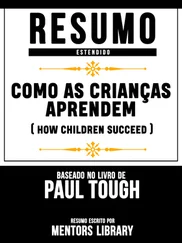Starting a translation business is a fairly inexpensive proposition. If you already have a home computer and high speed Internet access, you might make do with business cards, computerized fax service and a modest reference library, for a startup cost of only a few hundred dollars. To a large extent, freelancers can determine when and how much they want to work. While it probably makes good business sense to accept as much work as possible from your regular clients, on a day-to-day basis many translators work on their own schedule rather than from 9 to 5. A translator’s eight hour day might run from 7:30–11:30 AM and 4:30–8:30 PM, and some translators vary their work schedules according to the schedules of their clients in other time zones. Today, most translation work happens remotely, and translators can live almost anywhere. The up and down nature of most freelancers’ work loads also lends itself to using free time to take classes, pursue hobbies, travel or spend time with family.
On the downside (and of course there are some downsides to all of this!), as with other consulting or freelance work, some aspects of translation can be stressful and difficult to manage. Many translators are prone to the “feast or famine” phenomenon, with months of little work and months of too much work. Worldwide business acceleration has affected translation turnaround times, with agencies eager to have translations returned as soon as possible, sometimes within a few hours for a short project. Clients who pay late or don’t pay at all can cause major financial problems, especially for translators who live paycheck to paycheck. Translators who work in common language combinations like Spanish ↔ English may face pressure to lower their rates in order to remain competitive, especially if the client can find qualified translators in countries where pay rates are much lower. In addition, working from home has its ups and downs; even for an introvert, the life of the home office can be lonely, and time spent on (unpaid) non-translation work like accounting, marketing and maintaining computer systems can become frustrating when you’d much rather be translating! If you’ve never worked for yourself before, succeeding as a translator demands a high degree of self-discipline. With no boss in the next cubicle and a list of household errands to finish, it can be hard to focus on your work, and if you have a family or housemates, equally difficult to find a work-friendly time and space in your house.
However, most translators enjoy their work and like to talk about what they do and how they got started. The ever-changing nature of the job appeals to many people, since no day “at the office” is exactly like another. Another positive aspect of the job is that most translation clients value their translators and treat them as professionals who deserve to be fairly paid for their work. Even in the most common language combinations, the supply of qualified and capable (emphasis here!) translators often cannot keep pace with the industry’s demand, resulting in a generally positive employment picture for translators and interpreters. The United States Bureau of Labor Statistics reports that employment prospects for translators and interpreters should grow faster than the average for all occupations until at least 2016.
3.6 What kinds of work do translators do?
As cross-cultural and multilingual communication become more important to the worldwide flow of business, translators and interpreters are employed in almost every conceivable business and government sector. From law to health care to finance, entertainment, information technology and advertising, translators and interpreters enable global communication. Some translators, especially those with specialized professional or technical training, might concentrate on only one subject area, such as pharmaceuticals, corporate finance, computer software or legal contracts. There are even translators who specialize in seemingly obscure areas like fisheries management, shopping mall construction, stamps, or groundwater hydrology. Still others position themselves as non-specialized translators with concentrations in certain areas. In general, the more translators there are in a given language pair, the more specialization is required, and the smaller the translator pool, the less incentive there is to specialize. German to English translators in the U.S. almost certainly have specializations, but the same isn’t necessarily true of the few Bosnian to English translators doing business in the same markets.
Although most translators in the U.S. are independent contractors, full-time jobs for translators and interpreters do exist, particularly in areas such as court and health care interpreting, web content translation, software localization, and translating and interpreting for the United States Government’s various agencies including the Federal Bureau of Investigation, Central Intelligence Agency and National Security Agency. Translators who are experienced and/or qualified to work in more than one language pair may have a greater chance of being offered an in-house position.
Literary translators (translators who work on novels, plays, poetry or short stories) make up a relatively small segment of translators in the United States. This is because literary translation is typically not very well paid, and because Americans don’t tend to read literature in translation, so there is a small market for the work of literary translators; approximately 3% of adult fiction published in the United States is literature in translation. Depending on your language pair, you may find a reasonable amount of work translating non-fiction books such as textbooks, guidebooks, cookbooks, etc. If you are interested in literary translation, the website of ALTA literarytranslators.org, the American Literary Translators Association, is an excellent resource.
Localization translators are a rapidly growing group in the industry. Localization, or the complete adaptation of a product such as a web site, product marketing kit, software program or advertising campaign into another language, used to be confined mostly to computer software. Now, software localization is probably the largest segment of the localization market, but it’s certainly not the only segment. Businesses may hire localization agencies when they want to take a new product global and need culturally-targeted marketing advice in addition to translation services.
By definition, translation, the process of changing written material from one language to another, is a translator’s core business activity. A few pointers here: unless you truly consider yourself to be a native speaker of two languages, you should be translating into your native language only, not into your second or third language. There are certainly exceptions to this, for example in small-diffusion languages where translators are hard to find. However if you work in English paired with a commonly translated language such as French, Italian, German, Spanish or Portuguese, stick to translating into your native language only. Translation is most often paid by the word, in some countries (specifically the United Kingdom) per 1,000 words, in some countries (specifically Germany) by the line, and less often by the hour. Make sure to clarify ahead of time whether your client will be paying you by the source or target word count, since these can differ by as much as 30%.
Translation-specific editing is a skill in its own right, which requires not just knowledge of the source and target language of the document to be edited, but also of the spelling, grammar and usage conventions of the target language. Editing (also sometimes called revising ) is sometimes reserved for experienced translators, but if you enjoy editing it’s worth offering it as an additional service. If you would like to offer editing services, consider taking some courses in editing that are specific to your target language. Editing is paid either by the word or by the hour, which has its pluses and minuses. If you charge by the hour, you know that you will be paid for all the time you put in on the project. Charging by the word will make your client happy because they will get a fixed quote before you begin the project; the only danger of charging by the word is that you can end up with a poor hourly rate if the translation requires extensive revision.
Читать дальше
![Коринн МакКей How to Succeed as a Freelance Translator [calibre 3.46.0] обложка книги](/books/402693/korinn-makkej-how-to-succeed-as-a-freelance-transl-cover.webp)


![Джон Ирвинг - Našlė vieneriems metams [calibre]](/books/384320/dzhon-irving-naŠle-vieneriems-metams-calibre-thumb.webp)
![Джонатан Димблби - Barbarossa - How Hitler Lost the War [calibre]](/books/385421/dzhonatan-dimblbi-barbarossa-how-hitler-lost-the-w-thumb.webp)







